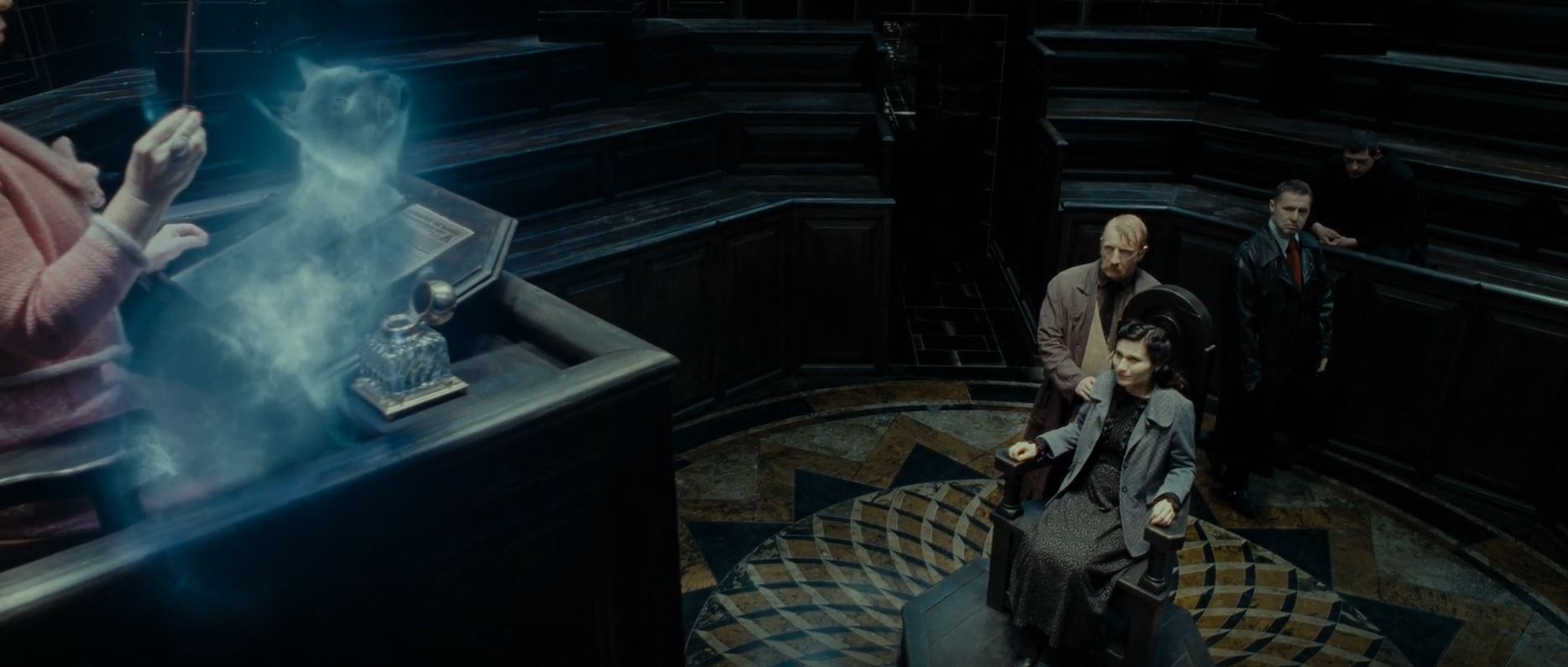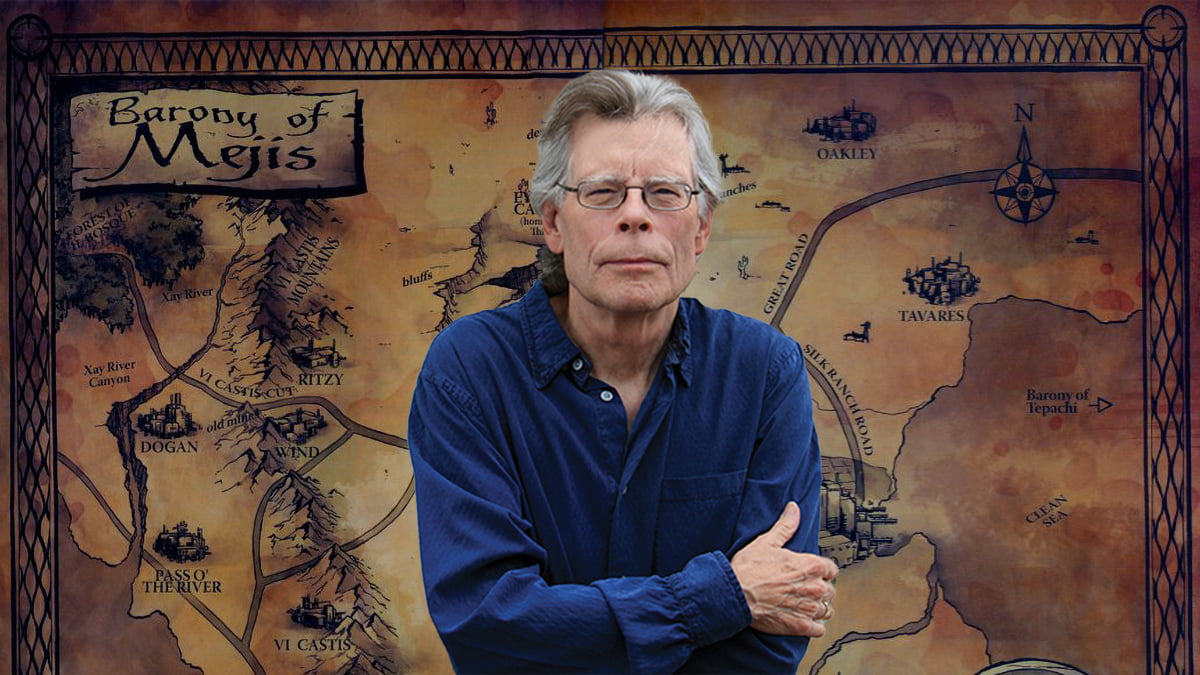Patroni are a visual representation of the casters deepest positive emotions, such as happiness, hope or even the desire to survive. Patroni are a defensive magic, used as a protector rather then an offensive weapon and are cast by the spell Expecto Patronum which translates from Latin into “I await a protector”
Visually, Patroni are silvery in color and appear to be semi-transparent and, depending on the skill of the one casting it, can range from a short burst of silvery mist to a fully recognizable animal {known as a corporeal patronus} which normally has some meaning to the witch or wizarding casting it. This animal has been known to change normally due to some great emotional upheaval (such as the case of Tonks).
A Patronus is the only known defense against both Dementors {due to it’s inability to feel any emotion and therefore Dementors have no effect to it} and Lethifolds.
Severus Snape has been confirmed by J.K. Rowling as the only Death Eater to have ever conjured a Patronus ‘because a Patronus is used against things that the Death Eaters generally generate, or fight alongside. They would not need Patronuses’.
The Patronus can also be used as highly efficient messengers, a skill only known by the Order of the Phoenix. Patroni are not affected by physical barriers or dark matter and since no one can produce another’s Patroni, there is no doubt of fake messages being sent or interception. It is interesting to note that multiple Patroni can be produced at one time as demonstrated by McGonagall producing three Cats for three separate messages.
Below is a list of all known character Patroni.
Aberforth Dumbledore
Goat
Symbolism: Vitality, fertility, creativity, virility, abundance, lust.
Reference: DH, Chapter 28: The Missing Mirror, p.449 A.Ed
Albus Dumbledore
Phoenix
Symbolism: Overcoming impossible odds, reincarnation, new life/cycles, cleansing energy of fire, rebirth, renewal, growth spiritually, strength, energy.
Reference: J. K. Rowling’s Official Website
Arthur Weasley
Weasel
Symbolism: Boldness, purification, parental love, vigilance, and watchfulness.
References: DH, Chapter 9: A Place to Hide, p. 144 A.Ed
Cho Chang
Swan
Symbolism: Sensitive, emotional, dreamer, grace, balance, innocence, faithfulness, solitude, retreat, poetry, sincerity.
Reference: OotP, Chapter 27: The Centaur and the Sneak, p. 619 A.Ed
Dolores Umbridge
Cat
Symbolism: Detachment, stealth, desire, magic, lust, pride, vanity
References: DH, Chapter 13: The Muggle Born Registration Commission, p. 212 A.Ed
Ernie Macmillan
Boar
Symbolism: The warrior spirit, leadership, direction, magic, protection, hospitality.
Reference: DH, Chapter 32: The Elderly Wand, p. 521 A.Ed
Ginny Weasley
Horse
Symbolism: Stamina, strength and power, coping under difficult circumstances, love, devotion, loyalty, freedom.
Reference: OotP film; confirmed by J.K. Rowling
Harry Potter
Stag
Symbolism: Pride, independence, purification, strength.
References: OotP, Chapter 21: Hermione’s Secret, p.
Hermione Granger
Otter
Symbolism: Curiosity, mischievous, feminine power, grace, empathy, joy, helpfulness.
Reference: OotP, Chapter 27: The Centaur and the Sneak, p. 619 A.Ed
Lily Evans
Doe
Symbolism: Love, gentleness, kindness, gracefulness, sensitivity, purity of purpose, walking in the light, gentle,
Reference: DH, Chapter 33: The Prince’s Tale, pp. 551-552 A.Ed
Luna Lovegood
Hare
Symbolism: rebirth, rejuvenation, resurrection, intuition, balance, fire, madness.
Reference: DH, Chapter 32: The Elderly Wand, p. 521 A.Ed
Minerva McGonagall
Cat
Symbolism: Guardianship, pride, magic, protection, wisdom.
Reference: DH, Chapter 30, The Sacking Of Severus Snape, p. 480
Nymphadora Tonks
Large four legged beast. (Exact animal unknown)
Symbolism: Unknown.
Reference: HBP p. 158, 160, 340 and 467
Seamus Finnigan
Fox
Symbolism: Cunning, provider, intelligence, diplomacy, wildness, adaptation, protection.
References: DH, Chapter 32: The Elderly Wand, p. 521 A.Ed
Severus Snape
Doe
Symbolism: Love, walking in the light, swift, nimble, gentle, meditation, love, longevity, wealth.
Reference: DH, Chapter 33: The Prince’s Tale, pp. 551-552 A.Ed






